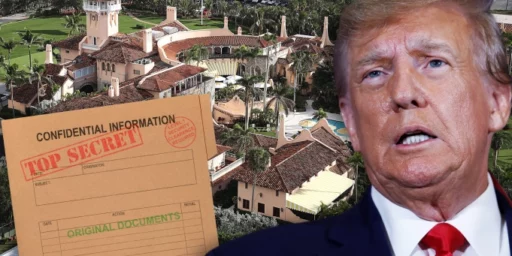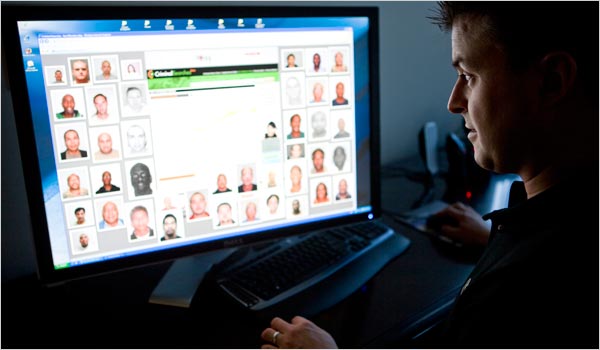NSA Metadata About To Become Evidence In Civil And Criminal Trials?
NSA Metadata coming to a courtroom near you?
It’s only been a few weeks since we learned to true scope of the National Security Agency’s data mining of the phone records of American citizens, but already lawyers in civil and criminal cases across the country are seeing the database as a potential discovery goldmine:
The National Security Agency has spent years demanding that companies turn over their data. Now, the spy agency finds the shoe is on the other foot. A defendant in a Florida murder trial says telephone records collected by the NSA as part of its surveillance programs hold evidence that would help prove his innocence, and his lawyer has demanded that prosecutors produce those records. On Wednesday, the federal government filed a motion saying it would refuse, citing national security. But experts say the novel legal argument could encourage other lawyers to fight for access to the newly disclosed NSA surveillance database.
“What’s good for the goose is good for the gander, I guess,” said George Washington University privacy law expert Dan Solove. “In a way, it’s kind of ironic.”
Defendant Terrance Brown is accused of participating in the 2010 murder of a Brinks security truck driver. Brown maintains his innocence, and claims cellphone location records would show he wasn’t at the scene of the crime. Brown’s cellphone provider — MetroPCS — couldn’t produce those records during discovery because it had deleted the data already.
On seeing the story in the Guardian indicating that Verizon had been ordered to turn over millions of calling records to the NSA last month, Brown’s lawyer had a novel idea: Make the NSA produce the records.
Brown’s lawyer, Marshall Dore Louis, said he couldn’t comment while the trial was ongoing.
“Relying on a June 5, 2013, Guardian newspaper article … Defendant Brown now suggests that the Government likely actually does possess the metadata relating to telephone calls made in July 2010 from the two numbers attributed to Defendant Brown,” wrote U.S. District Judge Robin Rosenbaum in an order demanding that the federal government respond to the request on June 10.
The laws of evidence require that prosecutors turn over to the defense any records they have that might help prove a suspect’s innocence.
“This opens up a Pandora’s box,” said Mark Rasch, former head of the Department of Justice Computer Crimes Unit, and now an independent consultant. “You will have situations where the phone companies no longer have the data, but the government does, and lawyers will try to get that data.”
The Federal Government’s response is about what you’d expect:
On Wednesday, federal prosecutors filed a motion saying they cannot respond to Brown’s request because the federal government does not have the data the suspect seeks — cell site location information, or CSLI. The leaked court order which inspired the request included was unclear on which metadata phone companies turn over.
The government’s motion also invokes the Classified Information Procedures Act (CIPA), which allows the prosecutors to respond to such requests “in camera,” or privately with the judge, to explain what data it does or does not have.
“The (CIPA) allows the government to protect classified information by claiming that, first, the phone records are classified, and second, whether or not the government has phone records is also classified,” Rasch said.
This particular criminal case is, of course, on where the Federal Government is a party to the case as a prosecutor. As such, the Judge must weight not simply the government’s argument that the information requested is classified and thus should not be disclosed, but also the question of whether the prosecution has a duty to turn over the evidence to the Defendant. As a general rule, the prosecution must turn over any evidence that is potentially exclupatory or which tend to call some aspect of the prosecution’s theory of the case into doubt. The rules for what must be turned over vary from state to state, and the Federal Courts have their own rules, but they all generally follow the principles set down by Brady v. Maryland, which established the general rule that Defendants are entitled to be provided with exculpatory evidence that prosecution may have against them.
Of more interest, though, is the likely hood that attorneys may try to gain access to this NSA metadata in cases where the Federal Government is not involved, such as state court criminal proceedings or even civil matters such as divorces:
Different standards apply to discovery in civil cases, such as contested divorce, but Solove said it’s possible lawyers in those cases could also appeal to the NSA for evidence, now that they know the records exist.
While it might seem unusual to demand data from an agency that not long ago was invisible to most Americans, Solove said it’s important not to put the NSA on some kind of legal pedestal.
“The NSA is not above the law. It’s a government agency, just like every other government agency. Just because it has this Harry Potter-like disappearing cloak, it’s still an agency that is subject to the law,” Solove said.
Since there would be no Brady-like obligation to turn over evidence in such situations, the arguments that lawyers seeking discovery in these types of cases are going to have to be very different, and the Federal Government’s arguments that the information should be protected because it’s classified would arguably go be stronger. Additionally, there would be interesting questions about exactly how the metadata could be authenticated as required by the applicable rules of matter should a particular case go to trial. Nonetheless, as Solve says earlier in the linked article, now that attorneys know that this database exists, they’re going to try to gain access to it. The guys over at the NSA better be prepared to be served with some subpoenas over the coming years.






This was precisely my biggest fear with these NSA programs: that all of this data would end up being used as evidence in court. The case cited above seems like the data may tend to help the defendant, but it isn’t hard to imagine the opposite.
We should totally freak out.
Or. . . Or here’s a crazy thought, so bear with me, I’m just thinking out loud here. . . The Congress could pass a law that places NSA records off-limits for any non national security use.
We do still have a Congress, right?
Seems to me like there is some money to be made here. Since the records actually belong to the provider, they could sell them to some security agency, say someone like Booz Allen. Since the cost of storing data has fallen so much, they could store it and sell it out as they are able. Defense attorneys can purchase the info if they want.
Steve
@michael reynolds:
That was necessitate Congress actually accomplishing something of substance, rather than voting to repeal Obamacare for the 39th time.
@michael reynolds: Though as Doug points out, at least in the criminal prosecution context there is a constitutional dimension. Meaning, while Congress could easily put the NSA data categorically off-limits in civil cases, it’s questionable whether they could do so for criminal prosecutions.
@michael reynolds:
Yeah and we used to have a Constitution too. I wonder what happened to it? Oh yeah, we gave it up to be “secure”
I have confidence that our Supreme Court will find a way to make the data off limits to defendants. The only question in my mind are how much will they gut Brady v. Maryland in the process.
It just isn’t fair (much less practical) to limit the stuff for use in an ordinary criminal investigation or prosecution but keep it off limits for civil litigation. What if we’re talking about a victim seeking damages from a convict arising out of the criminal event?
I agree with Steve’s prediction that the collation of all this valuable info inevitably will be done by private enterprise and sold to the highest and best users/bidders, as always. Guaranteed the PI down the hall from me would pay significant dollars for the near realtime skip-trace dope.
@edmondo:
Yes, we’ve lost the constitution. Which is why I can no longer write this comment. Because of the oppression and all.
Oh look! Jack-booted thugs coming through my front door! Aiiieeee!
@rudderpedals:
Or be given up to hackers as just happened to six million Facebook users.
@michael reynolds:
The difference is that you would welcome them because they make you “safe”.
@edmondo:
Bah….it’s not just about “feelings.”
Everyone who walked into the World Trade Center on the morning of September 11th, 2001 “felt safe.” Everyone who showed up at the Boston Marathon this year “felt safe.”
CPNI cannot be released by phone companies without a valid search warrant or subpoena. Even in house, the data is fire walled and can only be used in limited circumstances. I’ve had the fortune to have a number of jobs in my career, 6 years in the Army JAG Corps, 2 years in the General Counsel’s Office of a state utility regulatory body, a couple years as in house counsel for a small telco, a few years with my own shingle, and over 7 years at one of the big telecoms. The telecoms cannot sell their CPNI, can’t use it to obtain customers, and are required to train all their employees annually on the use of CPNI.
Use of the data in a criminal setting for the defense is a valid question. Though the request would need to be specific and limited, primarily from a practical stand point. The data set is too large to be an effective fishing trip. Use of the data by the prosecution would be limited by probable cause arguments. Im still not clear on how long the NSA stores the data, the telcos delete on a set schedule, I am guessing the NSA does as well. We can store more and more in smaller spaces, but there are still limits. The fun question is going to be when an unrelated criminal trial asks for information that is actually actively being used in a espionage or terrorist case. Don’t envy the judge who as to make that call.
@edmondo:
You make a lot of stupid assumptions.
Listen, Mr. Hair On Fire, civil liberties are a first world problem. Do you understand what I mean by that? I mean that civil liberties are of concern to people who essentially feel safe. Frightened people, desperate people, people who think their children may die, do not give a rat’s ass about civil liberties.
That’s why it’s a good idea to keep people basically feeling safe. So that we can preserve our civil liberties. Because if the American people get good and scared — for example, in the 1950’s when people were terrified of communists — civil liberties go right out the window. Ask a Japanese-American what happens to civil liberties when people are scared.
Get on a plane, fly around the world and at each stop ask people how much they care about the most exacting notions of civil liberties. Here’s what you’ll find: happy, safe, well-fed folks care a lot. Desperate, frightened or hungry folks not so much.
One 9-11 produced two entire decade-long wars. What do you think you get with, say, three more 9-11’s? You figure if Hezbollah gets it into its head to start blowing up suicide bombers in American shopping malls that civil liberties will be enhanced? Hello? Have you met the human race?
It’s a balance. Yes, I know the famous and usually mis-quoted Ben Franklin saw. What people mis-quote is that they leave out the modifier, “Essential.” As in “essential liberty.” And in any event, Mr. Franklin lived a very long time ago. And all aphorisms are facile, relying more on a pleasing sound than on sound logic.
In any case, it is a balancing act. It has always been a balancing act. We have always surrendered small bits of liberty in order to preserve larger bits of liberty.
You know what happened after the Boston Marathon bombing? Police told people in at least one neighborhood that they couldn’t leave their homes. Those people surrendered liberty. No doubt you’d have chosen to defy that order and go for a stroll past all the jumpy and heavily-armed police.
@michael reynolds:
Well, except for that inconvenient little fact that nobody hacked Facebook.
Senility is starting to affect your already low reading comprehension skills, I see.
@Habbit: Give him a break. Facebook’s vague description of what leaked out wasn’t a model of precision.
@ Dave in KC:
Thanks for the info, but I’ve a question. I thought they CPNI data did not include the actual phone numbers. at least that’s what Verizon was saying then they were offering opt-out in 2007.
can you clarify?
The wiki definition is actually pretty good.
http://en.wikipedia.org/wiki/Customer_proprietary_network_information